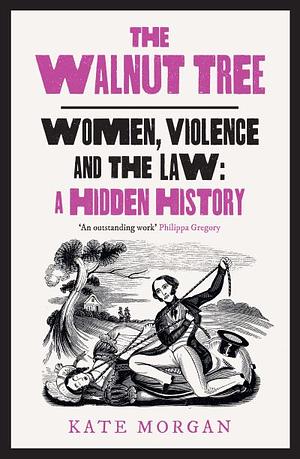
The Walnut Tree - Women, Violence and the Law: A Hidden History
by Kate Morgan
Genres: History, Non-fictionPages: 319
Rating:

Synopsis:'A woman, a dog and a walnut tree, the more they are beaten, the better they'll be.'
So went the proverb quoted by a prominent MP in the Houses of Parliament in 1853. His words - intended ironically in a debate about a rise in attacks on women - summed up the prevailing attitude of the day, in which violence against women was waved away as a part and parcel of modern living - a chilling seam of misogyny that had polluted both parliament and the law. But were things about to change?
In this vivid and essential work of historical non-fiction, Kate Morgan explores the legal campaigns, test cases and individual injustices of the Victorian and Edwardian eras which fundamentally re-shaped the status of women under British law. These are seen through the untold stories of women whose cases became cornerstones of our modern legal system and shine a light on the historical inequalities of the law.
We hear of the uniquely abusive marriage which culminated in the dramatic story of the 'Clitheroe wife abduction'; of the domestic tragedies which changed the law on domestic violence; the controversies surrounding the Contagious Diseases Act and the women who campaigned to abolish it; and the real courtroom stories behind notorious murder cases such as the 'Camden Town Murder'.
Exploring the 19th- and early 20th Century legal history that influenced the modern-day stances on issues such as domestic abuse, sexual violence and divorce, The Walnut Treelifts the lid on the shocking history of women under British law - and what it means for women today.
Having loved Kate Morgan’s book on the laws surrounding murder, I was prepared to quite enjoy The Walnut Tree — though, being a history of the rights of women through discussing the laws and legal cases that shaped them, it was bound to be pretty grim in some ways. And of course it was: it’s not easy (and nor should it be) to read about the way men used to be allowed to abuse women and deprive them of liberty, and how women were faulted for all kinds of things in order that people shouldn’t have to convict the men in their lives of anything.
Still, Morgan tells the story through well-chosen cases that illustrate a lot of the anxieties and questions in people’s minds at the time, and she manages to bring it all to life in a way that I (at least) find very readable and enjoyable. She has a knack for settings things out clearly and engagingly, and I enjoy this tactic of taking a legal-eye view of things.
That said, of course (as I mentioned), it does discuss some horrible cases and some very unfortunate women — abused, kidnapped, assaulted, and murdered. It’s saddening and infuriating, and sometimes it’s worse to think about the fact that some of these excuses and attitudes can still be found today. “She was asking for it”, “it was a crime of passion”, “she owed me”…
Not a comfortable read, but one that I found fascinating.
Rating: 5/5
